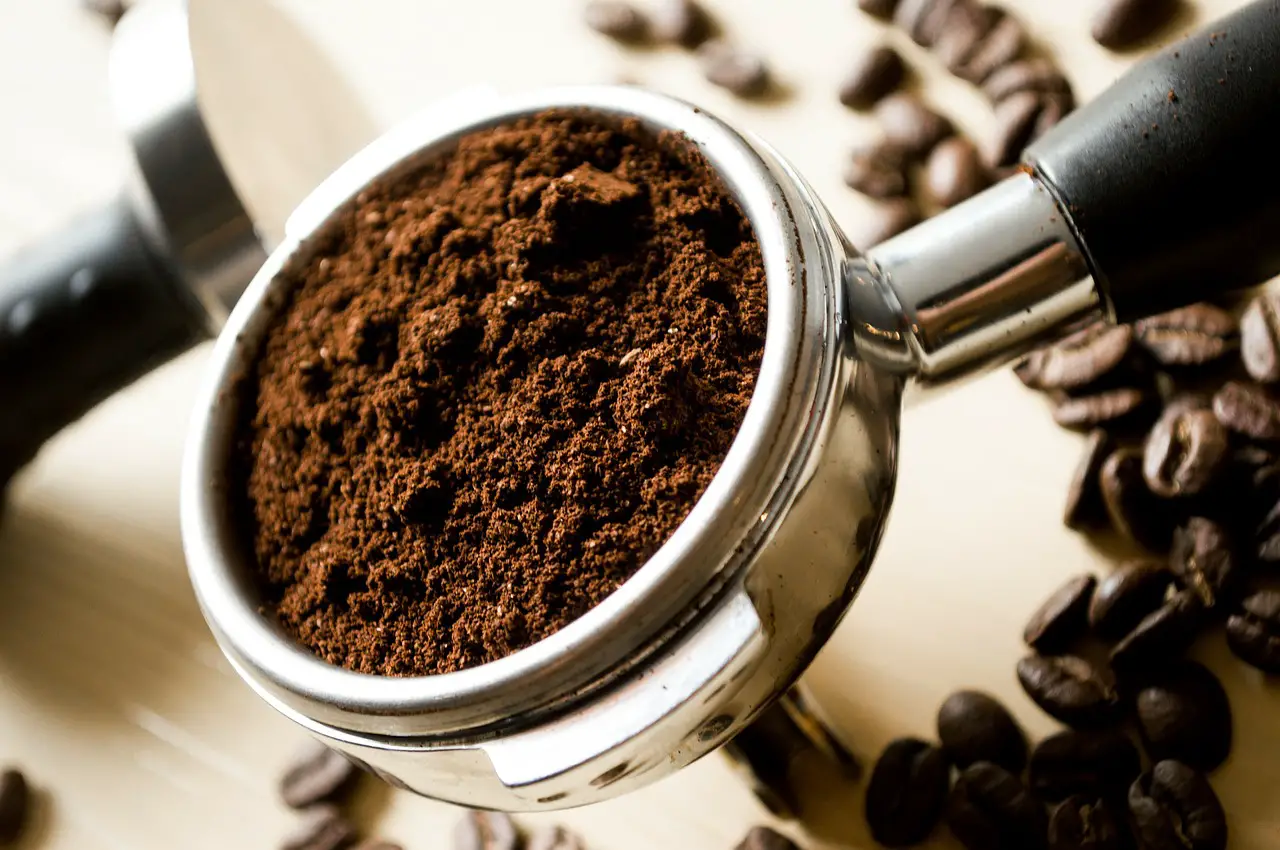NOTE! It’s not all about dosing to get a better coffee. There is a big difference between fresh and old coffee. Feel free to watch our movie here and you will see with your own eyes that fresh rust is the best!
DOSAGE OF COFFEE TO FOR YOUR COFFEE MAKER
Measure 6 grams of coffee per dl of water or the equivalent of 1 scoop from one coffee measure per dl of water.
A normal coffee measure usually contains just 6 grams of ground coffee to dispense this per 1 dl of water. Easy to count, easy to dose.
However, some smart marketers have come on the bucket that holds 7 grams of ground coffee (simply because customers then drink more coffee). If you have such a measure, you take a little more water – like a year or so.
I also write “as a rule” above, since the weight of the coffee is also influenced by e.g. origin and roasting degree. To know how many grams your coffee measure holds, our tip is that you weigh your coffee and your coffee measure once. Then you know how to dose!
If you use an electric brewer, this recommendation works just fine for brewing a well-balanced coffee. However, the size of our cups varies.
DOSAGE OF COFFEE BY MANUAL Brewing
Measure 16 grams of coffee per 250 grams of water or the equivalent of 3 tablespoons of coffee per 2.5 cups of water
When it comes to manual brewing (or hand brewing) of coffee, you have more room to experiment with dosing. A rule is that you start with the basic recommendation for the coffee maker. But you can use 250 grams of water and 16 grams of coffee when you brew by hand. If you have a big cup, you can take 3 tablespoons of ground coffee and 2.5 cups of water, which makes it all easy.
This dosage works for almost all different methods of hand brewing.
By keeping track of the relationship between water and coffee, you will come a long way towards a balanced cup of coffee. It is both fun and relatively easy to experiment with different recipes and dosages depending on which coffee you use – the main thing is to find what suits you best!
WAS THE COFFEE TOO STRONG OR WEAK?
Do you have the opportunity to grind your coffee beans at home? If so, you have another tool to control the nature of the coffee. In addition, it will smell extra good from the kitchen.
How do you know how the coffee should be ground? Appropriate grinding degree is controlled by the extraction time, ie the time when the water and coffee are in contact. A finely ground coffee has a higher contact surface with the water and then more intense flavors emerge.
If the extraction time is short, as with espresso, a very fine ground coffee is needed for the water to catch all the flavors. In the case of brew coffee, however, the beans do not need to be ground just as nicely, as the contact between coffee and water lasts a longer time. This is best suited to coarse ground coffee for the pressure cooker or cook coffee, which takes the longest to brew.
The grinding degree is just like the dosage a personal taste and the best thing is to research what is best for yourself. If the coffee is too thin, try a coarser grind! If the coffee is perceived as too bland or too acidic, a finer grind is probably needed instead. You should not have to dose the coffee differently in the first place, it is often in the grinding degree!
WATER QUALITY
Do you want to go a step further and delve more into getting the best in the coffee cup? Here’s a fun tip: Try mixing in something acidic in the brewing water, like a few drops of lemon or vinegar!
The water hardness degree varies a great deal, both locally and regionally. you have hard water, the coffee may be perceived as somewhat flat, as it is more difficult to get all the flavors. Soft water, on the other hand, more easily captures the aromas of the coffee.
If you have hard water, try grinding the coffee a little finer or mixing in lemon or vinegar in the brewing water. The acid affects the concentration of ions in the water, which means that the acidic taste profile in the coffee is strengthened. An easy and cheap alternative to a water filter!
MOVE THE FILTER BEFORE DOSING THE COFFEE AND ALWAYS USE FRESHWATER
Freshest cold water is usually highlighted as a further success factor. Soak the filter before dosing and brewing the coffee. That way you get rid of the minimal wood flavor that can come from here.
FINALLY…
Dosing your coffee is about testing yourself to find what suits you best. Feel free to use a scale or some measure to keep track of the dosing of the coffee, and if you are not already using a coffee grinder it can be a good investment to succeed with an even better coffee at home. Freshly roasted and freshly ground coffee beans elevate your coffee to a new dimension. If you want more inspiration for brewing and dosing the best coffee, check out our brew guides here. Good luck!
